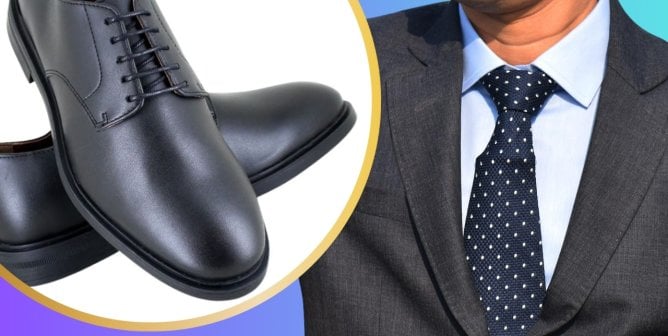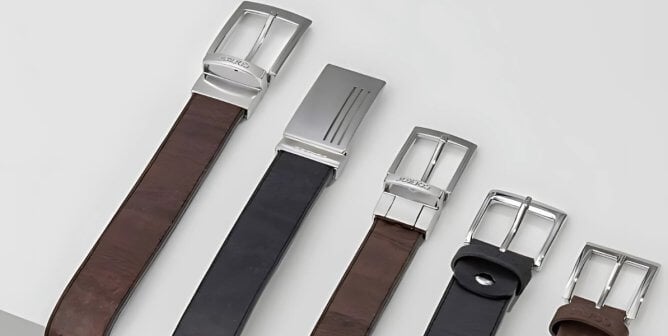This Is Why Carrying a Leather Handbag Is Just Like Biting Into a Hamburger
Saying “no” to eating meat is great, but if you still wear leather, you’re continuing to support the cruelty of the meat industry.
A variety of reasons lead people to choose not to eat meat: animal welfare, their own health, or the environment. Maybe you check “all of the above.” But these same reasons are why you shouldn’t support the leather industry, either.
Animal Welfare
Do you avoid eating animals but still wear them? News flash: Animals don’t want to wind up on department-store racks any more than they want to wind up on our dinner plates. And the two industries go hand in hand. Leather is actually a coproduct (not a “byproduct,” as is so often claimed) of the unsustainable meat industry. Most leather comes from cows raised in the agriculture industry, where their flesh is turned into “beef” and their breastmilk is made into cheese, yogurt, and ice cream. These cows are subjected to painful procedures such as castration, branding (which causes third-degree burns), and tail-docking—all without painkillers.
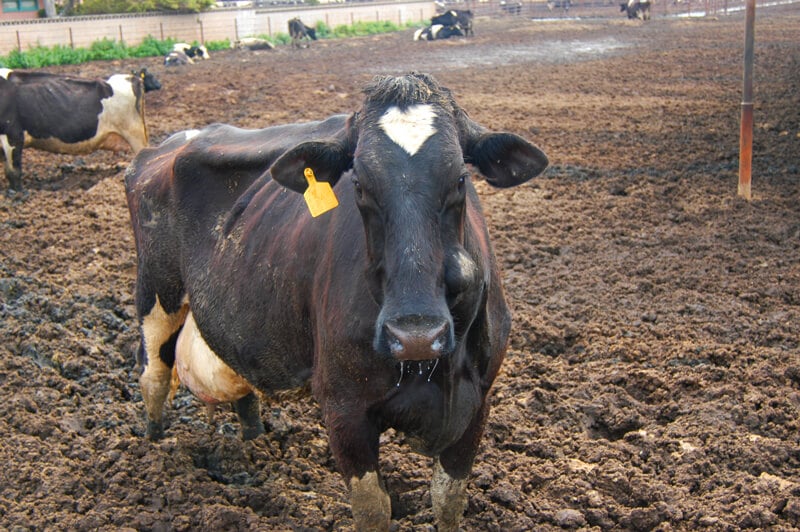
During transportation to the slaughterhouse, cows are jam-packed into metal trucks, where—confused and terrified—they face injury, weather extremes, crowded conditions, hunger, and thirst.
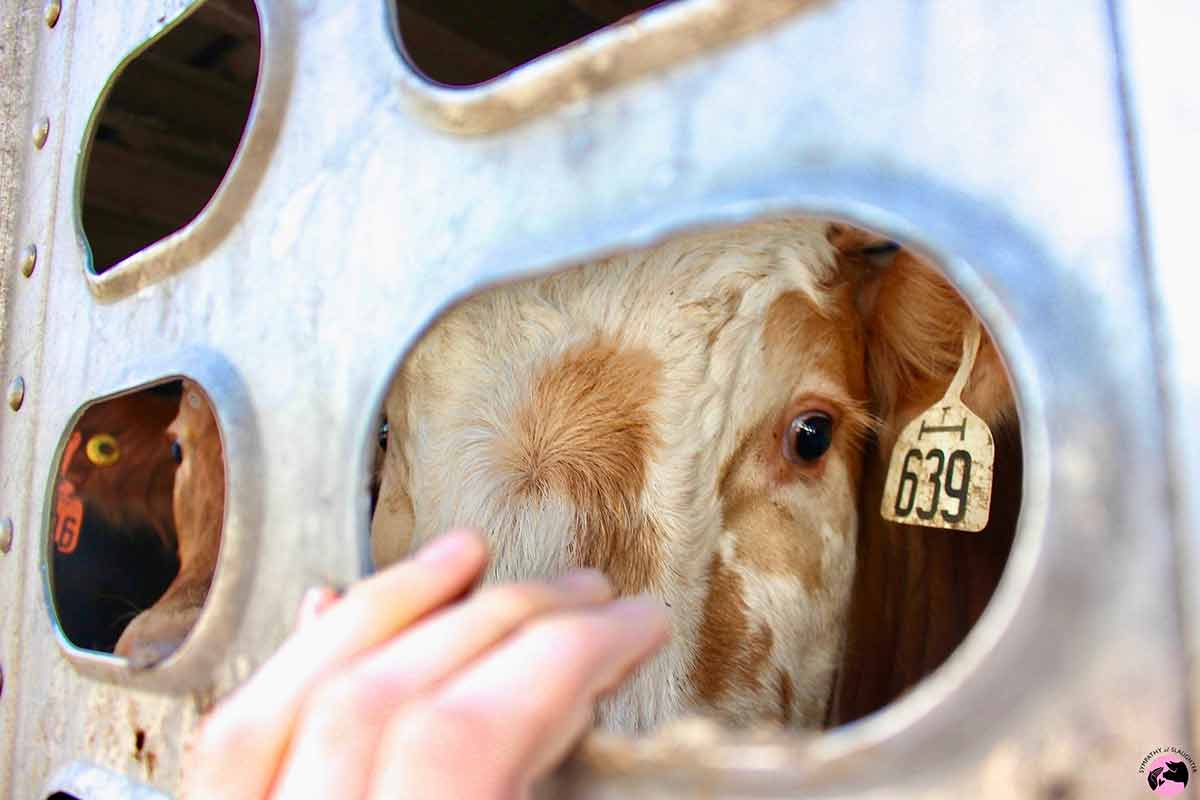
At the slaughterhouse, cows are hung upside down, bled to death, and skinned. Many of them are skinned and dismembered while they’re still kicking and crying out in terror.
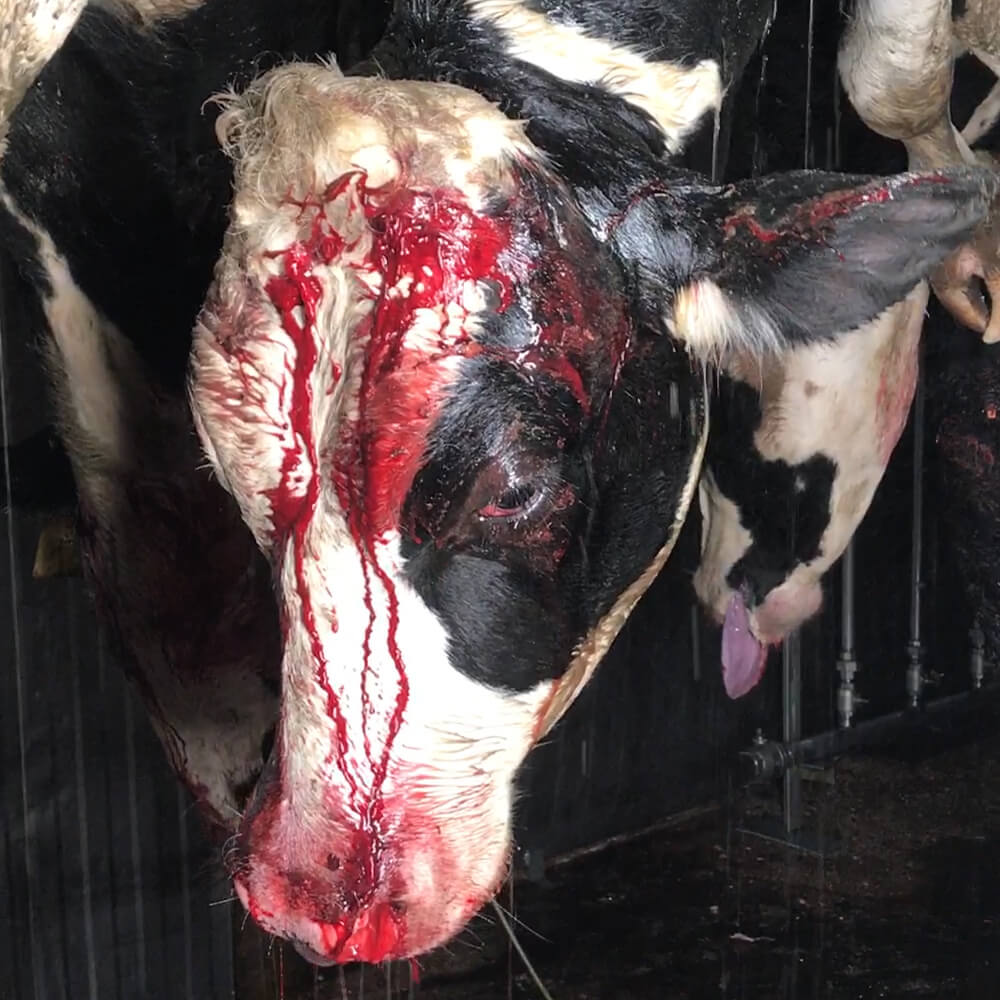
No animal wants or deserves to die for our appetites or appearances. Animals are not ours, period.
Human Health
We know that eating cows is bad for your health—eating beef is a good way to expand your waistline, increase your chances of becoming impotent, and increase your risk of developing heart disease, diabetes, arthritis, and other health conditions. But what about wearing cows? Raising animals for their flesh (“meat”) and skin (“leather”) requires huge amounts of fossil fuels. The U.S. Environmental Protection Agency (EPA) has even acknowledged that livestock pollution is the greatest threat to our waterways.

And if you think leather production is limited to China and India, think again. Most of the leather produced here in the U.S. is chrome-tanned, even though all wastes containing chromium are considered hazardous by the EPA. According to reports, leukemia rates among residents near a tannery in Kentucky were five times greater than the U.S. average. Instances of birth defects and miscarriages in the area were also high.
Animals on U.S. farms alone produce about 500 million tons of manure each year. With no animal-sewage processing plants, this manure is most often stored in waste “lagoons” or is sprayed over fields. People who live near farms are forced to inhale the toxins and pathogens from the sprayed manure.
The Environment
Raising and killing animals for their flesh and skin wastes countless resources and causes immense environmental destruction. Massive amounts of land and energy are used to operate farms, feedlots, and slaughterhouses, not to mention the trucks that transport the animals. Tons of water and edible crops are fed to these animals before humans kill them. Imagine if these plants and water were given to hungry, malnourished people—it could help end world hunger.
The animal-agriculture industry is also responsible for massive amounts of waste and greenhouse gases, which are bad for the planet’s health and our own. When it comes to climate change, animal agriculture is a leading culprit.
Consumers Are Getting With the Program
Humans are eating less cow flesh (aka “beef”), a fact that has thrown a giant wrench into the leather industry. But while leather is dwindling in popularity as a side effect of consumers’ declining beef consumption, it should be consciously avoided, too.
Be one of the many compassionate people who recognize the leather industry for what it is: the cruel co-industry to the equally cruel beef industry.
Whether you’re shopping for jackets, shoes, handbags, or wallets, wearing vegan has never been easier—or more stylish! Click below to get vegan fashion tips sent directly to your inbox:


